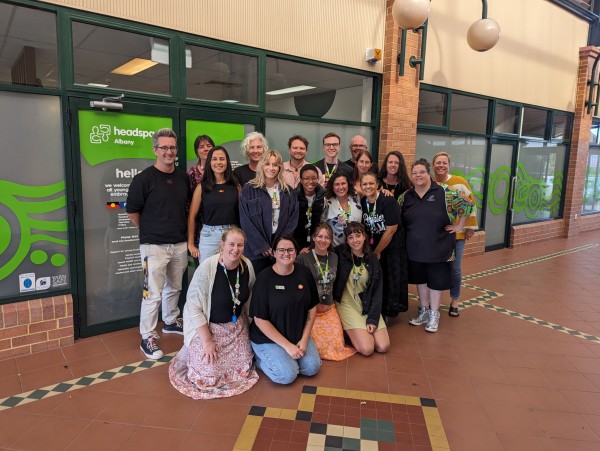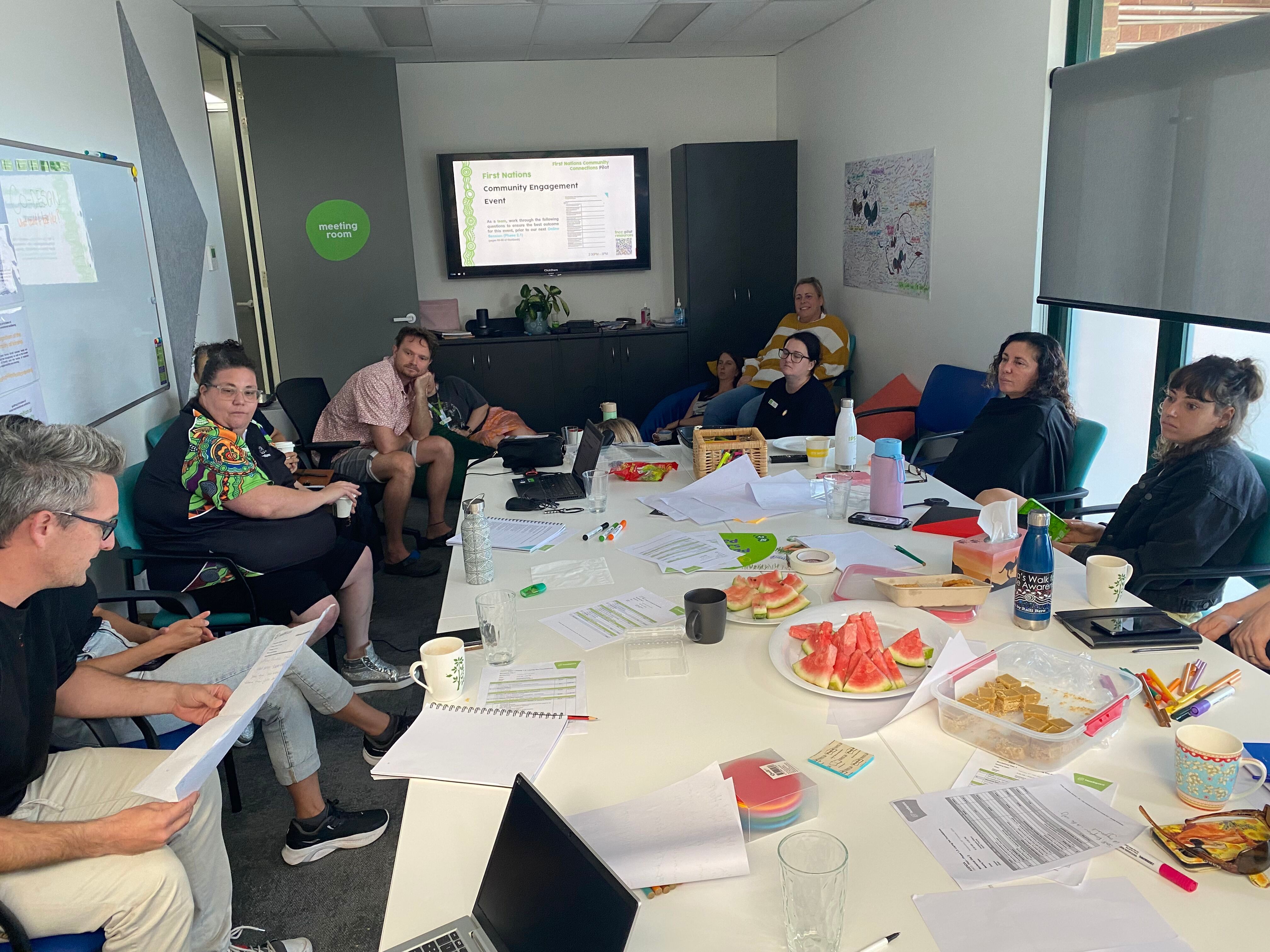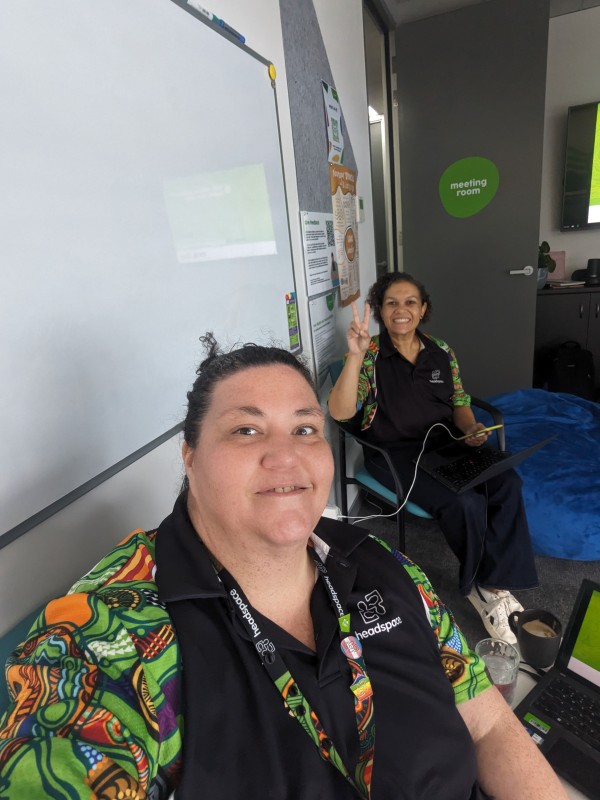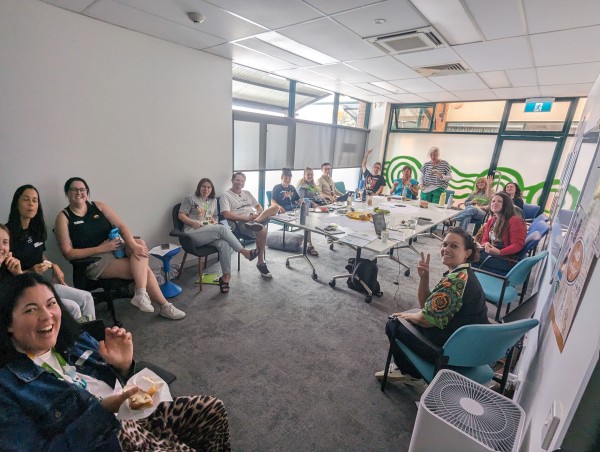headspace Albany share their experiences of the fncc project

While some of us were slightly nervous – and some freaking out - at the start of the two-day workshop, many of us were ready to throw ourselves into the project to ensure that we could start helping our community as soon as possible in a way that is helpful to the community.
This enthusiasm must be combined with the core concept of 'working at the speed of trust'. We need to work hard to take time to have a yarn and share experiences to create long-lasting relationships with First Nations people. These ideas and language itself played a very important role over the two days. Phrases such as "working at speed of trust", "sit in the uncomfortable spaces", "dabarkarn (gently moving)" and "holding space for the quiet voices".

headspace Albany often wants to be as helpful as possible as soon as possible. This was no different when we were given the opportunity to be part of the First Nations Community Connections (FNCC) Project.
We are approaching this project as a whole team. This work is everyone's and it can't succeed relying on one or two people, or roles. Moving clinicians into community where they can be seen, where they can listen and where they can develop true relationships is the only way we will build lasting and meaningful trust. Taking a 'whole of centre' approach is about building everyone's confidence and courage together so that we can go on this journey together. That will take longer, but help us reach further and have deeper connections with deeper listening.
If we are able to take actions that are respectful and culturally safe, we can aim to embody the idea of being and becoming an ally to those around us; rather than us deciding what we believe First
Nations people need, we need to listen to understand the people in the quiet spaces and collaborate to create a project that is led and informed by these voices.
Across the two days, our team felt comfortable asking questions and appreciated the opportunity to listen and "loved the opportunity to take turns yarning and not rushing to share stories and reflections over the two days. The practice of slowing down and deep listening was an invaluable skill to practice and learn for our engagement with First Nations peoples".
Learning more about creating relationships that are meaningful rather than transactional was part of one of the key points about connecting with the First Nations community, as was the importance of ensuring that our work involves true co-designing rather than consulting.
The workshop allowed us to look at the way that we work and how we can do better. Are we listening to the quiet voices in the community? Do we truly know the community? It is simple to ask for information when you need it, but we may unintentionally increase the cultural and colonial load of those around us. There are many aspects of people's lives that we don't see or may not consider.
We aren't always aware of sorry business or the cultural responsibilities to land and family that Elders and leaders in the community have – and we need to go slowly when asking for more of these people.

Throughout the workshop, we were told that we would make mistakes, and that making them was ok, as long as we learnt from them. Fears of being tokenistic and not knowing what our next steps will be part of the journey we are embarking on. But as we learnt, trusting ourselves with interactions that we have and being ok with potential change of plans, is what will help us adjust to new situations.
Finding this out will come through us going on a journey. Not one that is necessarily led by us. But one where our role is to listen and to go where we need to go.
Although we're just at the start, the project has already made our team think deeper about how we are working and how we can further incorporate Social Emotional Wellbeing into our existing Single Session and family work. As described by one team member, this experience was "a great opportunity to connect and drive this process together as a team. Great to listen to other's perspectives and experiences other than needing to share what I already think I know".
We've worked really hard within our clinical work to be and not do, to listen and to work in a way that suits the young person rather than us. This project is going to further strengthen and develop that work and highlights that we need to explore more community connections and cultural supervision options to take that work further for all young people – not just First Nations young people.
Space to both yarn and listen played an important part in the experience. Through this, mutual learning was able to take place. Sarah and Mellissa learnt from the team as well. Sarah learned it's worthwhile "checking in first with the Elders, local Aunties and Uncles of the area that I'm travelling to before meeting everyone at the centre".
Placing ourselves as allies and not assuming that we have a seat at the table is a step towards establishing trust as we aim for self-determination during the process of co-design. This process may not happen around a table or in our centre. Having a yarn over a cup of tea, having the privilege to hear existing knowledge and being prepared to hear that what we are doing may be tokenistic or that everyone you talk to wants to be part of what we do are simply part of the process.
The next steps may not be obvious to us, we're going to have to adjust to new ways of working and learning. Not everything will go to plan, but through meaningful interactions like having a yarn and creating connections, we can be more authentic in our actions to create a successful First Nations Community Connections (FNCC) Project.
